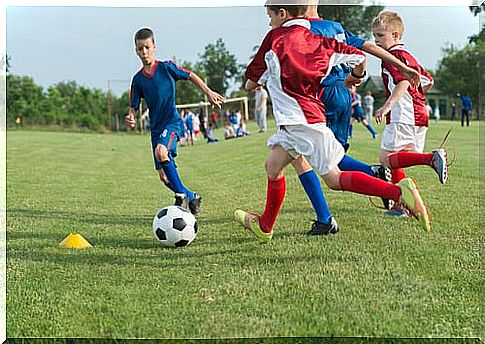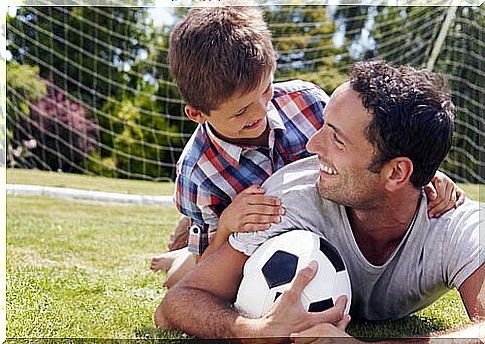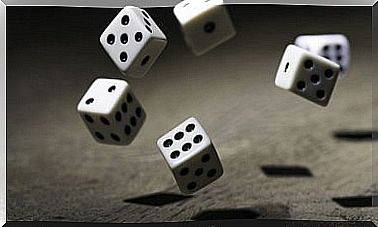Creating Real Champions (sports Psychology)

Have you ever wondered where boys and girls look when they play sports, and more specifically when they play soccer? Everyone (or almost everyone) looks at the ball. They are immersed in the game in such a way that getting them out of that situation is sometimes difficult.
If you go to a park or a school and look closely when children are playing soccer, you will see that they are carried away by the ball in a kind of hypnotic trance that they appreciate more than anything else in the world. In the competitions that the boys / as play something similar happens. There is only the ball.
But sometimes we find that this game – let’s not forget that before being a sport it is a game – we cover it with layers as if it were an onion. A kit, a team, a club, coaches, parents, and so on, even turning football into the “Champions League” in miniature. Boys with top brand sports equipment, boots that imitate those worn by famous footballers, artificial grass and everything else that creates a competitive environment.
So far everything is normal, except when, due to the latter, kids who all want to do is play a sport with their peers and have fun, become children full of anxiety to do it perfectly, as if playing was also part of obligations.
The role of adults in grassroots sport
If we go to a soccer field on a Saturday morning, it is not uncommon for us to find a whole “army” of parents behind their children, putting part of their faith in each kick of their offspring. They see in him a light, a promise of televised goals, exclusive interviews and full-color newspaper covers.
To do this, they leave their souls cheering, but also protesting and abhorring children who are only playing: trying to have fun and learn from all the positive values that a sport offers.

Perhaps many parents think that what I have told is an exaggeration or the verification of a problem that has always existed in part: a dramatization of a problem that does not exist or that if it exists does not generate so many negative consequences. Outside of that environment, common sense is fortunately wise and knows how to point to what poisons the sport.
At this point, it is convenient to remind some members of the football sports family (clubs, managers, technical directors, coaches, parents and family members) of some guidelines to maintain the physical and mental health of our children. I leave out the reviled referees, because at this age they should be mere witnesses and directors of the game.
Some tips for children to enjoy sports
Imagine that they are written by the children themselves …
1.- I am a child
We do not know if you have realized that we are only little people who do not reach 1’50 in height. And that all we want is to play. The calmer you leave us, the better, because what it is to play is great for us and we already fight enough for you to add more fuel to the fire. Let our quarrels fall into oblivion and let us reconcile.
2.- We are not thinking about what we will be when we grow up
You who are an adult know that life takes many turns. I only ask that you let me enjoy this sport with my teammates now. What has to come, if fortune and my skills give for it, it will come. Help me to enjoy my childhood, I will have time to be an adult.
3.- I like the values of sport
I love teamwork, sharing, helping my teammates and even the feeling of discipline that our coach imposes on us. Take care of this environment and do not confront me with rivals, because this is not a war, just a game.
4.- Of course I like to win! And also not winning!
So I don’t need you to crush me all the way home, to comment on every play where the ball has slipped away or I’ve been a bit clumsy.
Your role is the opposite, to take iron out of the matter and to encourage me so that when we start eating I am already thinking about what we are going to do in the afternoon. Take me out for a snack and you will see how well we are going to have a good time.

5.- I don’t want to be ashamed of your behavior
How many times have you told me that you always have to behave? It is to whistle the referee and transform you into someone I do not recognize. I do not know the person who loves me and advises me with patience and who watches over me from my true interests.
The ball has not come out of the band and you have already launched an insult, given some instruction as if you were the coach and thought that I am worth everything and I am worth nothing. Don’t forget about balance, you are always my example. Also in sports, which is still a part of life.
6.- I already have a coach
Do not constantly direct me from the band, do not tell me “shoot”, “shoot”, “pass” or “dribble” … And even less, all at the same time. My coach already tells me what to do. Don’t try to help him, he knows very well how to lead us. And if there is something that you think he is doing wrong, ask to speak with him, so that he can give you the appropriate explanations. But remember that you have to respect him and accept that he has another point of view.
7.- If I do not play or play less time, do not be angry
All children want to play, but we do not measure the time we play. For us, time is not a measure of quantity but of quality. We are looking forward to going out and running after the ball. Thus, participating and being part of the “show” fills us so much that at night we do not sleep thinking about the game. Our coach will give us minutes as we are being prepared.
Please respect the decisions of my coach. Don’t be rigid thinking that he should play more. Maybe you should think that you are not a coach and that the best thing for me is that you act as a father. I want you like that.
8.- Parents also play
Believe it or not, you are very important every game. You also play. You accompany us, you are always by our side and that makes us feel safe. Looking at the stands and seeing your faces and your gestures of approval for us is essential. You are our fans, as in first, you encourage us in the moments that we are having the worst time in the game.
Your behavior makes a soccer Saturday afternoon the most wonderful time of the week. My father watches me play soccer without expecting anything in return, only that I play soccer and enjoy what I can. Also think, that you understand, my worth as a person does not depend on whether I haggle better or worse, I shoot better or worse, I stop better or worse.
9.- The important thing is the people, not the results
Managers should understand that to evaluate a football team you should not take the classification. You are up the season is good, you are down the season is bad. You should measure a team by the relationship that the coach has with us, the players. Ask us what our coach is like. Also how we get along with each other, put questions to everything we learn every day.
What values we have developed throughout the campaign. How we have represented our club when we have traveled abroad. How we have respected our own and others’ facilities. How we have respected the rival in the victories and, especially, in the defeats. How much progress we have made since we started. How much we have learned as people and as footballers. And so we could continue asking questions of quality and not quantity for a long time.

10. The coach is a guide for us
Remember that the smaller we are, the better prepared those who direct us must be. And we do not mean to have done many courses. But to people with enthusiasm, empathy and with a pleasant treatment.
That he knows about football (what football represents) and not about results. That he leads people so that they grow as people and not footballers to make them competitors. That you know what job corresponds to each category of lower echelons. A coach not a point scorer.
At this point, it should be said finally that these tips should be applied at the lower echelons of all sports. But it is also true that in all categories the level of demand is different. For this reason, the progression in demands towards the boys must be very well measured by the club and its coaches and parents support the decisions or guidelines that the club sets, provided they are within reasonable limits.









